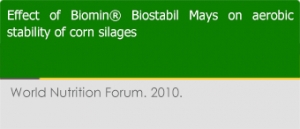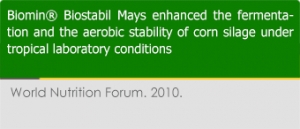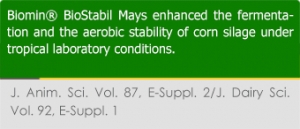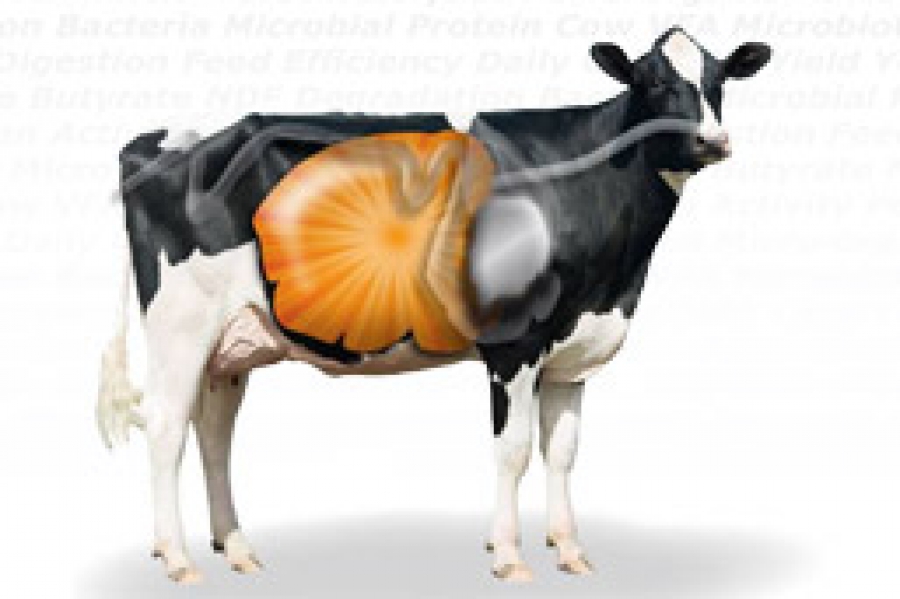Displaying items by tag: سیلاژ
K. Schondorfer, Y. Y. Acosta Aragon, A . Klimitsch, and G. Schatzmayr
It is commonly know that corn silage ferments well due to the presence of fermentable sugars. However , in contrast to green forages, it is usually prone to aerobic deterioration due to a long growth period on the field and accordingly a high natural contamination with moulds and yeasts. Therefore it is crucial to improve the content of stabilizing acids (e.g. acetic acid, propionic acid) in a way that secures effective suppression of aerobic spoilage organisms upon opening the silo.
This goal can be reached by directly adding stabilizing acids, which are usually expensive and/ or corrosive , or by producing them during the fermentation process, by addition of heterofermentative lactic acid bacteria .
A. A. Rodriguez,Y. Acosta Aragon, and E. Valencia
An experiment was conducted to determine the effects of the silage additive Biomin® BioStabil Mays ( BSM, blend of homo- and heterofermentative lactic acid bacteria) on the fermentation characteristics and aerobic stability of corn whole plant (QPM variety) growth and ensiled in Puerto Rico. Corn was harvested 75 d after planting and chopped finely. Prior to ensiling, the vegetative material of the trial group was treated with BSM (1 x 105 cfu/g silage). A control group went untreated. Treatments were applied to weighted portions of corn forage , manually mixed, and packed into PVC laboratory silos. Samples of fresh forage of each treatment were taken at 0,3,45 and 90 d of fermentation ( triplicate silos of each treatment were available), analyzed for PH, chemical composition,
A. A. Rodríguez*1, Y. Acosta-Aragón2, and E. Valencia1, 1University of Puerto Rico, Mayaguez, PR, 2Biomin GmbH, Austria.
An experiment was conducted to determine the effects of the silage additive Biomin® BioStabil Mays (BSM, blend of homo- and heterofermentative bacteria) on the fermentation characteristics and aerobic stability of corn whole plant (QPM variety) growth and ensiled in Puerto Rico. Corn was harvested 75 d after planting and chopped finely. Prior to ensiling, the vegetative material was treated or not with BSM (1 x 105 cfu/ g silage). Treatments were applied to weighted portions of corn forage, manually mixed, and packed into PVC laboratory silos. Samples of fresh forage and triplicates silos of each treatment were taken at 0, 3, 45 and 90 d of fermentation, analyzed for pH, chemical composition, and fermentation products.










